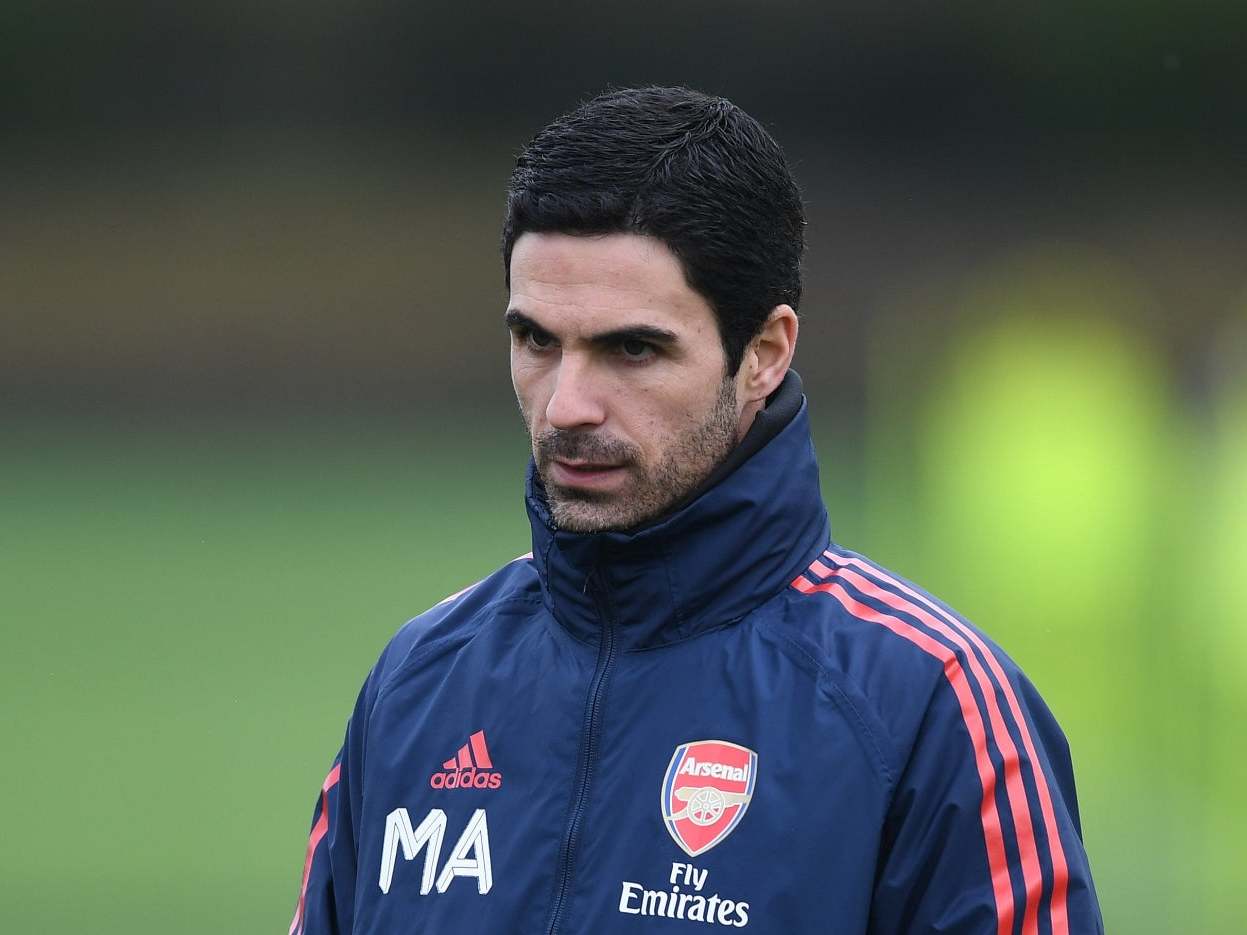Arsenal vs Leeds: Marcelo Bielsa takes on second-generation disciple Mikel Arteta in most modern of ties
The style of football that will be on display in the third round tie will be an illustration of the game’s evolution

Your support helps us to tell the story
From reproductive rights to climate change to Big Tech, The Independent is on the ground when the story is developing. Whether it's investigating the financials of Elon Musk's pro-Trump PAC or producing our latest documentary, 'The A Word', which shines a light on the American women fighting for reproductive rights, we know how important it is to parse out the facts from the messaging.
At such a critical moment in US history, we need reporters on the ground. Your donation allows us to keep sending journalists to speak to both sides of the story.
The Independent is trusted by Americans across the entire political spectrum. And unlike many other quality news outlets, we choose not to lock Americans out of our reporting and analysis with paywalls. We believe quality journalism should be available to everyone, paid for by those who can afford it.
Your support makes all the difference.In a different era, under the same managers, Arsenal vs Leeds United would be a very different sort of match. And that does not at all refer to the illustrious history of the two clubs, or even the decline of the FA Cup.
It is entirely about the type of football we will see. Much of this will of course be everything we’ve heard for so long about Marcelo Bielsa: the relentless running, the pressing, the shape.
This third-round tie will feature all of that but what is genuinely notable is what will also come from the other side because of the manager in the opposite dug-out.
This will be Mikel Arteta’s fourth match as manager, but there have already been signs of similar principles in his Arsenal team.
That obviously isn’t a surprise since he declares himself as a disciple of Bielsa and has worked under another in Pep Guardiola, but it does actually represent a break in history, and may well be very relevant to the future of how the game is played.
In any previous decade, Arteta’s profile would really mean he represents the opposite to Bielsa. Consider the following.
Arteta’s arrival as a manager comes a full 30 years after Bielsa’s first major job at Newell’s Old Boys in 1990, and well over a decade since the Argentine’s principles began to deeply permeate and define the entire game.
That is a long time in football but an even longer time in football tactics. For the deeper relevance of this, compare it to the 30 years before. The beginning of the 1960s brought the spread and dominance of the ultra-defensive Catenaccio in the 1960s, before that wall was exhilaratingly smashed apart by the Dutch creation of Total Football and first introduction of pressing by the end of the decade. That itself saw a response in the more restrictive ‘Gioco all’Italiana’ that was propagated by Giovanni Trapattoni by the end of the 1970s, before Arrigo Sacchi smashed that staid approach open with his own re-interpretation of pressing a decade later.

You can pretty much see the pattern here. There’s the introduction of a proactive tactic that starts to win, and spread, before some new innovator comes with a reactive tactic to counter – and repeat. That broad defence-attack-defence-attack pendulum has been the way of it up until pretty much 2008, when Pep Guardiola so incorporated Bielsa’s ideas for his re-imagining of Total Football at Barcelona.
And this is the thing. It’s been 12 years now. That’s the time scale it took, say, for Catenaccio to rise and Total Football to overtake it before bringing a response of its own – and there’s been no counter; or, maybe more precisely, no response based on counter-attack.
This is why this would have been a very different game, in any other era.
Given his age relative to Bielsa’s, Arteta would have been influenced by another defensive school of tactics, that had risen in the last few years. But that never happened.
The principles of Bielsa persevered. They evolved, and changed, sure. But they persevered. It means we have another break in history.

Bielsa is effectively taking on a second-generation disciple in that way, since Arteta is someone directly influenced by the Argentine’s initial disciples. This is not something that has happened too often in the game. But it might be because of a once-a-century occurrence. It is impossible not to feel that, to a certain degree, the argument has been won; reactive and defensive football has been defeated.
It is more limited, and doesn’t have as many places to go. There are obviously a number of factors to this. One is purely tactical, and that argument about the possible routes of one approach compared to the other. Attacking football inherently involves more imagination, an infinite number of solutions. Defensive football does not. Another factor is how players are coached, as well as the sports science related to that. Footballers are sleeker and faster, with superior general technique, playing on far better surfaces in much better conditions.
Leaving aside the fact defenders just aren’t developed in the same way, it is harder and harder for a team to base an entire game plan on standing strong at the back. There is a greater likelihood than ever before that they will be overwhelmed. A series of Champions League comebacks provide some evidence of this.
There is then another modern factor: marketing and entertainment. Clubs have realised the need for an identity, something to sell. This is one major reason Arteta is at Arsenal. And his identity has not just been informed by the club. It has been inspired by Mauricio Pochettino, Guardiola – and ultimately Bielsa. It means this is the type of modern match we see a lot now, but also something that is actually a bit of a break in history.
Join our commenting forum
Join thought-provoking conversations, follow other Independent readers and see their replies
Comments